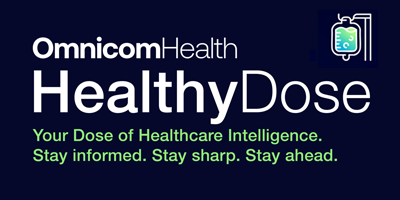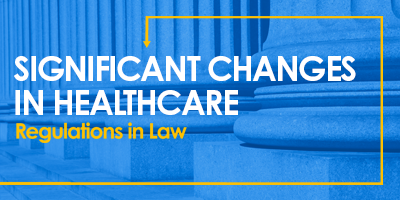The Rise of Digital Health and Technology Integration in the Pharmaceutical Industry

In 2025, digital health is no longer a future consideration—it is a present imperative for key industry players in the pharmaceutical services sector, including manufacturers, specialty pharmacies, payers, and providers.
The Rise of Digital Health and Technology Integration in the Pharmaceutical Industry
In 2025, digital health is no longer a future consideration—it is a present imperative for key industry players in the pharmaceutical services sector, including manufacturers, specialty pharmacies, payers, and providers. Across the industry, one theme stands out above all: technology integration is reshaping every facet of patient support, distribution, and outcomes measurement. This direction is reinforced by the latest conference trends and industry talking points, which consistently point to the rapid rise of digital health and technology as the defining transformation of the year. Artificial intelligence, automation, real-time data, and advanced patient engagement platforms are at the forefront of nearly every discussion, signaling a significant shift in how our industry operates and delivers value.
But what exactly is digital health? Digital health refers to the use of digital technologies—such as mobile health apps, wearable devices, telemedicine, and data analytics platforms—to improve health outcomes, enhance healthcare delivery, and empower patients.
To help our audience stay ahead in this evolving landscape, Archbow will continue to share insights into the top emerging trends in market access through our blog over the coming months. We invite you to check back regularly for more engaging topics and timely insights as we explore what these changes mean for your organization and the patients you serve.
Digital Health: From Optional to Essential
Digital health has become a foundational element of both commercial strategy and patient care. As the industry faces increasing complexity—rising specialty therapy launches, more diverse patient populations, and mounting regulatory demands—organizations are embracing technology as the key enabler of speed, efficiency, and innovation.
AI-Driven Adherence and Patient Support
Artificial Intelligence (AI) is now powering platforms that predict which patients are at risk of non-compliance and proactively deliver tailored interventions to address this risk. Whether through timely reminders, personalized educational content, or direct outreach, these innovative solutions promise not only better adherence but also a more personalized patient experience, leading to improved clinical and commercial outcomes.
The Buzz Around AI and Automation
Perhaps the most striking industry trend this year is the commitment to harnessing AI and automation. While AI-driven adherence support is a key opportunity, automation is equally essential, from administrative task automation to predictive analytics that help stakeholders anticipate and address patient and operational needs. Together, these technologies are driving both improved outcomes and greater efficiency across the board.
Whether automating routine administrative tasks, enabling predictive analytics, or powering next-generation digital engagement platforms, investments in AI are poised to deliver better decision-making, operational efficiencies, and—most importantly—improved patient outcomes.
Real-Time Data Integration: The New Standard
Delayed or siloed data is quickly becoming outdated. With real-time data integration, stakeholders across the care continuum—manufacturers (HUBS), specialty pharmacies, payers, and providers—can access up-to-the-minute insights on patient progress, therapy utilization, and potential barriers to care. This connectivity accelerates time to therapy, reduces administrative burdens, and supports earlier interventions when patients need help most.
Streamlining Prior Authorizations and Access
Prior authorization has long been a significant challenge for both patients and healthcare providers. In 2025, digital platforms designed to automate and streamline the PA process have gained significant traction. These solutions leverage data and intelligent workflow automation to reduce turnaround times, minimize manual errors, and ultimately enable patients to begin therapy more quickly. For manufacturers, specialty pharmacies, providers, and payers, this translates to improved satisfaction and greater operational efficiency.
Enabling Real-World Evidence and Outcomes Measurement
The shift toward value-based care and outcomes-based contracts is driving an acceleration in demand for real-world evidence (RWE). Digital health solutions, particularly those that integrate patient-reported outcomes and claims data, are now essential tools for collecting, analyzing, and acting on RWE. This, in turn, informs more effective patient support programs, drives product differentiation, and supports ongoing success in market access.
What This Means for Pharma Companies
For pharmaceutical companies, specialty pharmacies, and patient service providers, embracing digital health and technology integration is no longer a “nice to have”—it is mission-critical. Organizations that invest in digital infrastructure, data interoperability, and AI-enabled solutions will be best positioned to navigate complexity, meet evolving patient needs, and achieve commercial success.
How Archbow Consulting Can Help
At Archbow Consulting, we help our clients identify, evaluate, and implement the digital health strategies and technologies best suited to their business goals. Whether you are considering a new patient support platform, exploring AI-driven analytics, or looking to optimize your data integration strategy, our team brings the industry expertise and firsthand experience to guide your digital transformation.
Connect with us to learn how we can help you turn digital health trends into actionable, measurable results for your organization and the patients you serve.
For additional insights on this topic, you may also enjoy the following:
DTC/DTP + Telemedicine – The Next Big Thing in Pharma?
The May 2025 Executive Order marks a seismic shift in the U.S. pharmaceutical patient access market.
Evolving Pharma: How DTC/DTP and Telemedicine are Redefining the Industry’s Future
By understanding DTC, DTP and the intersection with telemedicine, pharma can deliver more value to patients and drive measurable results.
Significant Changes in Healthcare: Regulations in Law
The pharmaceutical industry is facing a wave of regulatory changes in 2025 that will have a significant impact on stakeholders.
SUBSCRIBE
Subscribe to receive news and updates from Archbow Consulting
|
|


